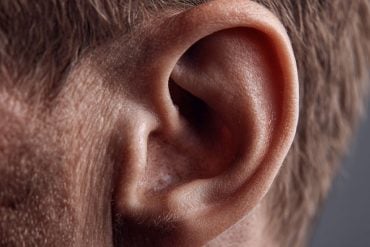Summary: Drinking coffee makes your taste buds more sensitive to sweetness, a new study reports.
Source: Aarhus University
Sweet food is even sweeter when you drink coffee. This is shown by the result of research from Aarhus University. The results have just been published in the scientific journal Foods.
Coffee lovers with a penchant for dark chocolate now have a scientific explanation for why the two are a perfect match. A study from Aarhus University shows that coffee makes you more sensitive to sweetness.
In the study, 156 test subjects had their sense of smell and taste tested before and after drinking coffee. The researchers found no changes tin their sense of smell, but they found that the sense of taste was affected.
“When people were tested after drinking coffee, they became more sensitive to sweetness, and less sensitive to bitterness,” says associate professor at Aarhus University Alexander Wieck Fjældstad, who was involved in carrying out the study.

To rule out the possibility that caffeine in the coffee could be a factor, the researchers repeated the experiment using decaffeinated coffee. With the same result.
We are easily affected by sweetness and bitterness
“It’s probably some of the bitter substances in the coffee that create this effect,” says Alexander Wieck Fjældstad.
“This may explain that if you enjoy a piece of dark chocolate with your coffee, it’s taste is much milder, because the bitterness is downplayed and the sweetness is enhanced,” he continues.
According to the researcher, the study sheds some light on a new aspect of our knowledge about our senses of smell and taste.
“We already know that our senses have an effect on each other, but it’s a surprise that our registration of sweetness and bitterness is so easily influenced.”
According to Alexander Wieck Fjældstad, the results maybe provide us with a better understanding of how our taste buds work.
“More research in this area could have significance for how we regulate the way in which we use sugar and sweeteners as food additives. Improved knowledge can potentially be utilised to reduce sugar and calories in our food, which would be beneficial for a number of groups, including those who are overweight and diabetes patients,” he explains.
Background for the results:
The study is a comparative study in which trial participants act as their own controls.
The study is financed by Arla Foods and Region Midtjylland. The sponsors had no say, roles, or responsibilities in relation to the study, including (but not limited to) study design, data collection, management, analysis, interpretation of data, writing of the manuscript, or the decision to publish. Neither of the authors have any conflict of interest to declare.
Alexander Wieck Fjælstad is affiliated with a research group investigating enjoyment in Oxford as well as at the Flavor Clinic, Øre-Næse-Halsafdelingen in Holstebro.
About this neuroscience research article
Source:
Aarhus University
Media Contacts:
Press Office – Aarhus University
Image Source:
The image is in the public domain.
Original Research: Open access
“Chemosensory Sensitivity after Coffee Consumption Is Not Static: Short-Term Effects on Gustatory and Olfactory Sensitivity”. by Alexander W. Fjaeldstad et al.
Foods doi:10.3390/foods9040493.
Abstract
Chemosensory Sensitivity after Coffee Consumption Is Not Static: Short-Term Effects on Gustatory and Olfactory Sensitivity
Chemosensory sensitivity has great variation between individuals. This variation complicates the chemosensory diagnostics, as well as the creation of a meal with universally high hedonic value. To ensure accurate characterization of chemosensory function, a common rule of thumb is to avoid food/beverages one hour before chemosensory testing. However, the scientific foundation of this time of fast remains unclear. Furthermore, the role of coffee on immediate chemosensitivity is not known and may have implications for optimization of gastronomy and hedonia. The aim of this study is to investigate the modularity effects of coffee consumption on immediate gustatory and olfactory sensitivity. We included 155 participants. By applying tests for olfactory and gustatory sensitivity before and after coffee intake, we found no changes in olfactory sensitivity, but significantly altered sensitivity for some basic tastants. We repeated our experimental paradigm using decaffeinated coffee and found similar results. Our results demonstrate that coffee (regular and decaffeinated) alters the subsequent perception of taste, specifically by increasing the sensitivity to sweet and decreasing the sensitivity to bitter. Our findings provide the first evidence of how coffee impacts short-term taste sensitivity and consequently the way we sense and perceive food following coffee intake—an important insight in the context of gastronomy, as well as in chemosensory testing procedures.
Feel Free To Share This Neuroscience News.






